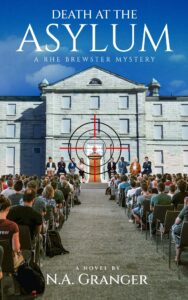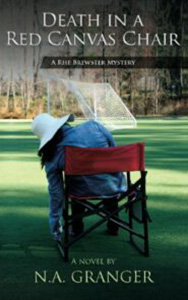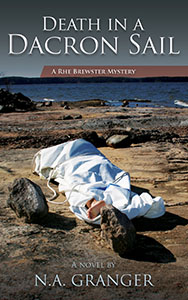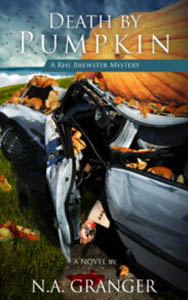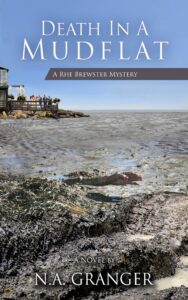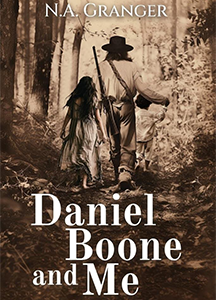Today it’s my great pleasure to meet with Pat Spencer, author of Sticks in a Bundle, a compelling foray into the challenges of a mixed-race family living under the rule of apartheid. Pat is, like me, a retired professor, but also a former community college president. She lives in sunny Southern California with her husband. She’s lived in three countries and seven states and loves to travel, and has spent time in Europe, South Africa, Botswana, Zambia, Zimbabwe, and Namibia, to name just a few places, because she enjoys getting to know people and learning about their culture. She lives in sunny Southern California with her husband. She’s lived in three countries and seven states and loves to travel, and has spent time in Europe, South Africa, Botswana, Zambia, Zimbabwe, and Namibia, to name just a few places, because she enjoys getting to know people and learning about their culture. Pat agreed to meet me at the Nasher Museum of Art on the Duke University Campus for brunch at the Nasher Café. The museum is dedicated to presenting leading edge contemporary art and exhibitions, emphasizing works by artists who have been historically underrepresented. I’ve never failed to be impressed every time I’ve visited. Its café overlooks part of the museum’s sculpture garden and is quiet and serene. We sat at a table with a lovely view of the garden. There are lots of yummy things on the menu. I ordered an avocado smash for the two of us (avocado, garlic hummus, grape tomatoes, pickled red onion, feta, and toasted sunflower seeds on 9-grain wheat toast), and my usual, the smoked salmon omelet (smoked salmon, marinated tomatoes, onions, and a dill cream sauce). And of course, a latte. Pat chose another favorite of mine: Citrus French Toast, which she’d never had before, and Belgian Chocolate Tea with cream and two sugars – her and her granddaughter’s choice for when they have tea parties. Our beverages arrived and while we were waiting for our food, I took the opportunity to ask some questions. I’m always interested in where authors do their thing! Where do you write? I’m the luckiest girl in the world when it comes to writing space. I overlook the Pacific Ocean, so when my brain needs a moment of rest, all I have to do is look up and out. And I also have everything I need to enjoy my day of writing in this room — good music, an electric teapot, a selection of my favorite teas, and my yoga mat for when my muscles need a stretch. What have you learned about from the process of writing historical fiction such as Golden Boxty in the Frypan – which incidentally, I loved – and Sticks in a Bundle? In writing Golden Boxty in the Frypan, I strengthened my research skills and ability to convey the texture of the era. From writing the Sticks in a Bundle trilogy, I deepened my ability to portray thoughts, emotions, memories, fears, desires, and flaws. Our food arrived and we chatted casually about our enjoyment of writing and our backgrounds, along with the “Mmms” at the taste of our choices. Along with more questions. I’ve always been interested in an author’s childhood and how that might have inspired their writing. I understand you have such a connection with the Sticks in a Bundle trilogy. Looking back, I believe the road to Sticks in a Bundle began when I was a child growing up in the Deep South. Even at the age of six, I was totally baffled and disgusted by certain societal rules. For example, on a family trip to Sears Roebuck, when we walked past the water fountains, I noticed that the sign over the tall metal water fountain read “White.” The shorter one, so short an adult would have to bend completely at the waist to drink, was labeled “Colored.” Since I was wearing my church dress, I worried my mother would grab me around the waist, hike me up, and expose my underpants to anyone who happened along. But most importantly, I wanted to drink the water that I imagined gloriously bubbling from the spout in every rainbow hue. So, I demanded to help myself at the shorter fountain. Which resulted in a resounding spanking. Also, my brother and I were disappointed not to be allowed to ride in the back of the bus, directly over the wheel well, where, as all children know, the bumpiest and most fun ride can be had. How did this affect your thinking as an adult? In the 1970s, as a young adult, I spent four months back in the Deep South. Discrimination was a bit more hidden, but I witnessed several incidents about which I felt helpless to do anything. I found the same thing to be true in South Africa, twenty-one years after apartheid laws were abolished in 1991. Sociocultural change is slow. I saw how active discrimination continued to affect the lives of the majority of the population. But it wasn’t until a woman on a repurposed school bus offered me a seat beside her and told me stories from her life that I realized there was something I could do. I could write. I could keep her stories alive. Like me, you have books published in multiple genres, although yours are far more extensive: thriller, historical fiction, literary fiction, and nonfiction. So I’ve been dying to ask what you have found to be the positives and negatives of writing across the genres? Creatively, I find writing across genres great fun and good exercise for my brain. It has taught me more about pace, voice, structure, and theme. When writing my thriller, Story of a Stolen Girl, I studied and practiced creating hooks for the beginning and ending of each chapter. I also learned that conveying fear entailed a lot more than penning, “She was afraid.” Writing this novel helped me develop the ability to entice my readers to care
![]()



